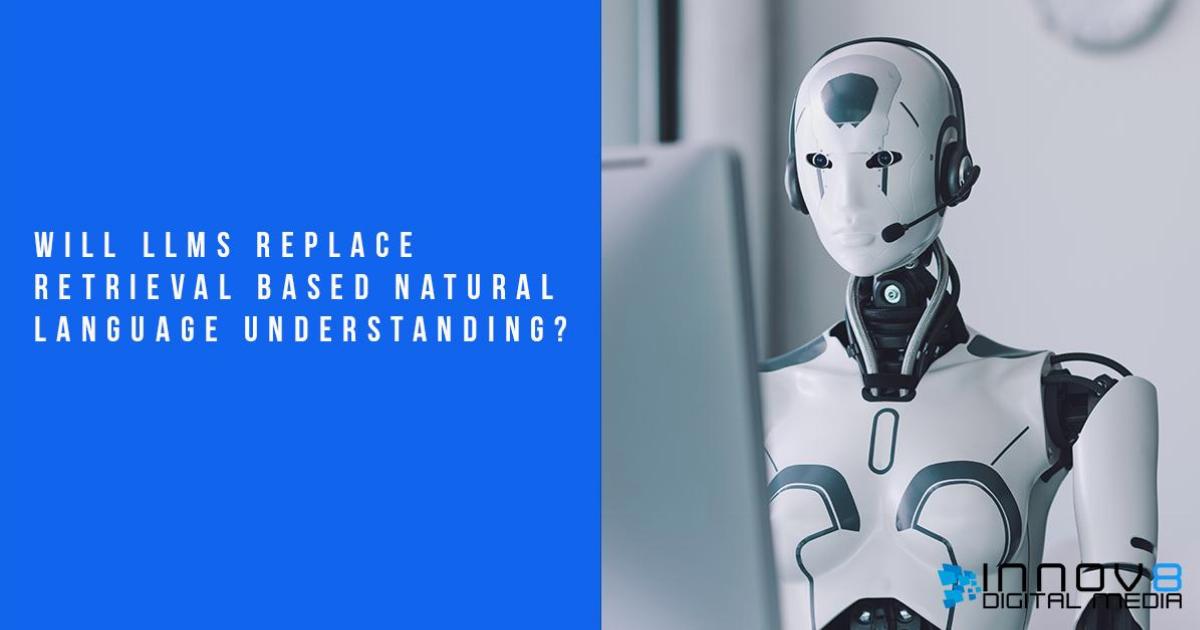 Adam Keith Milton-Barker 2945 2024-01-07
Adam Keith Milton-Barker 2945 2024-01-07
Natural Language Understanding (NLU) is a field within artificial intelligence that focuses on enabling machines to comprehend and interpret human language. Two prominent approaches to NLU are retrieval-based methods and Large Language Models (LLMs), each with its strengths and weaknesses. In this article, we will explore the key distinctions between retrieval-based NLU and LLMs (Large Language Models), shedding light on why some argue that retrieval-based methods are more reliable.
Retrieval-Based Natural Language Understanding:
Retrieval-based NLU involves extracting information directly from predefined datasets or knowledge sources. These systems rely on curated datasets or repositories to find the most relevant information based on the input query. Common techniques include keyword matching, rule-based systems, and more sophisticated methods like semantic matching.
Advantages of Retrieval-Based NLU:
- Precision and Accuracy: Retrieval-based systems often excel in providing precise and accurate responses. Since they draw information from curated datasets, the retrieved answers are more likely to be factually correct.
- Interpretable Results: The transparency of retrieval-based systems is a notable advantage. Users can trace the origin of the response to a specific piece of information within the knowledge base, making it easier to understand and trust the system's output.
- Reduced Bias: Retrieval-based NLU tends to be less susceptible to biases present in training data, as it relies on explicit information stored in knowledge bases rather than learning patterns from diverse and potentially biased corpora.
Language Models:
On the other hand, LLMs, such as GPT (Generative Pre-trained Transformer) models, have gained significant popularity in recent years. These models are pre-trained on massive amounts of data and can generate human-like text based on context and input.
Advantages of Large Language Models:
- Contextual Understanding: LLMs excel in understanding context and generating coherent responses by capturing intricate linguistic patterns. They don't rely on predefined databases and can provide answers even when faced with nuanced or ambiguous queries.
- Adaptability: Language models are capable of adapting to various tasks without requiring explicit programming for each task. Their versatility allows them to handle a wide range of language-related applications.
- Continuous Learning: LLMs have the ability to continually learn and improve over time. As they encounter new data, they can update their knowledge and adapt to changing language patterns.
Challenges and Controversies:
While LLMs offer impressive capabilities, concerns have been raised about their potential to generate incorrect or biased information, especially when faced with ambiguous queries or unverified data. The "black box" nature of these models, where it can be challenging to trace the source of generated responses, also contributes to skepticism.
Why Some Prefer Retrieval-Based NLU:
- Reliability and Trust: Advocates for retrieval-based NLU argue that the explicit reliance on curated databases makes the systems more reliable and trustworthy, particularly in scenarios where accuracy is paramount.
- Reduced Generalization Risks: Retrieval-based systems are less likely to generalize information and generate responses that may sound plausible but are factually incorrect. This reduces the risk of spreading misinformation.
- Controlled Information Source: By relying on a controlled knowledge base, retrieval-based NLU allows organizations to maintain control over the information presented, ensuring that responses align with their established standards.
In the ongoing debate between retrieval-based NLU and LLMs, it is essential to recognize that the choice between the two depends on the specific use case and requirements. While LLMs offer unparalleled flexibility and adaptability, retrieval-based NLU shines in scenarios where precision, transparency, and control over information are paramount. Striking a balance between the strengths of both approaches could pave the way for more robust and reliable natural language understanding systems in the future.
Comments
Have any thoughts you would like to share? Use the comments below.